World Humanitarian Day: ‘In Gaza, we can’t imagine tomorrow’
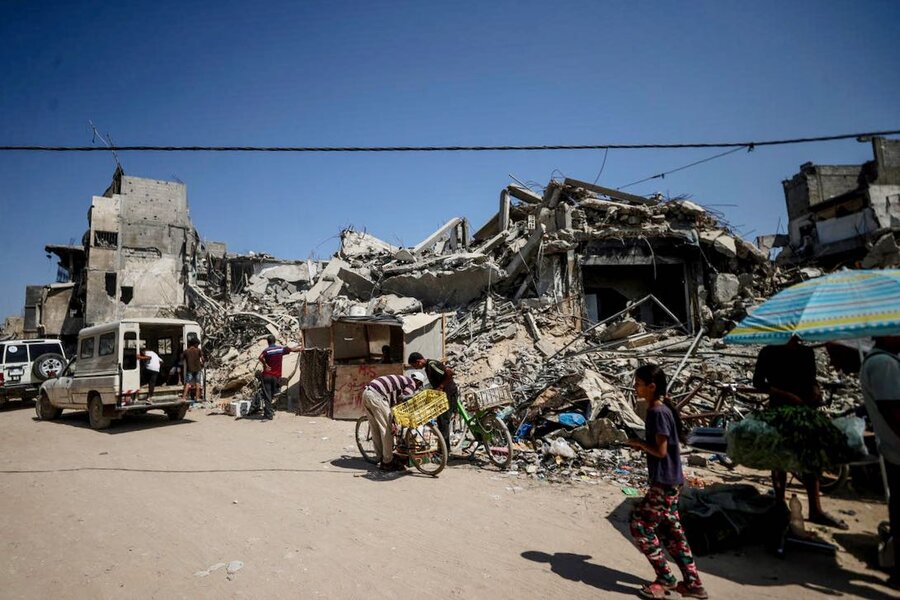
Windows shattered by nearby airstrikes. Children crying out from conflict’s psychological blowback. The sense of a hangman’s noose growing ever tighter. These are some of the stories shared by World Food Programme Gaza employees. Like for hundreds of thousands of fellow Palestinians on the Strip, there is no escaping the 10-month-old war. Three WFP colleagues – Fatima Khudair, Amal Abushammala and Nour Hammad – recount their experience of surviving and working through Gaza’s crisis, trying to fight fear and hold on to hope, and finding fleeting happiness in doing their jobs.
Fatima Khudair
Programme Assistant
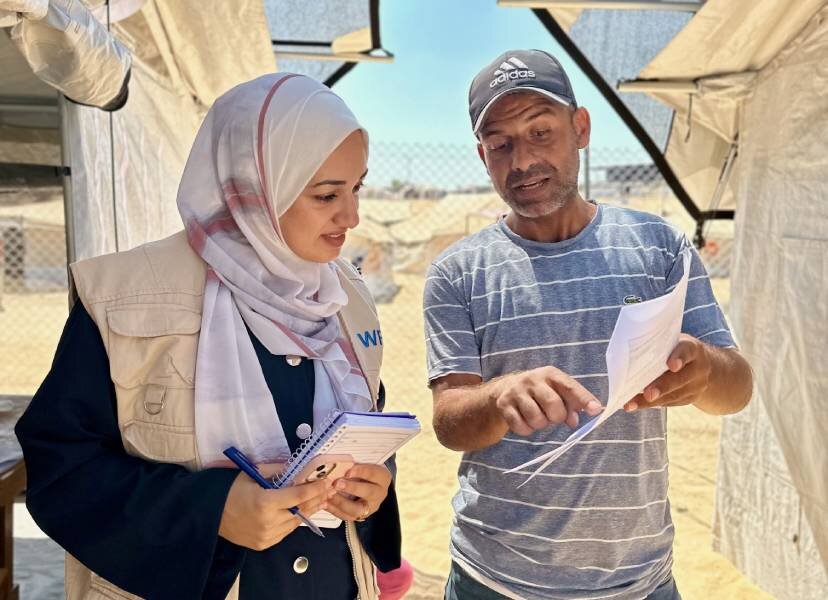
Days after the war in Gaza began, Fatima Khudair and her family fled their home in Gaza city, beginning a months-long odyssey that took them to the southern cities of Khan Younis and Rafah, before settling – for now – in a town in central Gaza. Today, she and her husband and two daughters (aged 1 and 3) live in a single room in a WFP guesthouse, sharing cramped quarters with 11 other families.
Each time you arrive in a new place, you have nothing. You have to rebuild your life from scratch. My kids are growing up, and they have no clothes that fit them. When the weather got cold, they had nothing to keep them warm. We go to the market and pick up whatever clothes we find. There’s now food at the market, but it’s very expensive.
I get up every morning, breastfeed my youngest daughter and go to work. I tell my youngest, ‘you’re the lucky one. You have your breast milk, your food is here.’ But my eldest has sleeping disorders. Each displacement is hard on her. Sometimes she gets angry or cries for no reason.
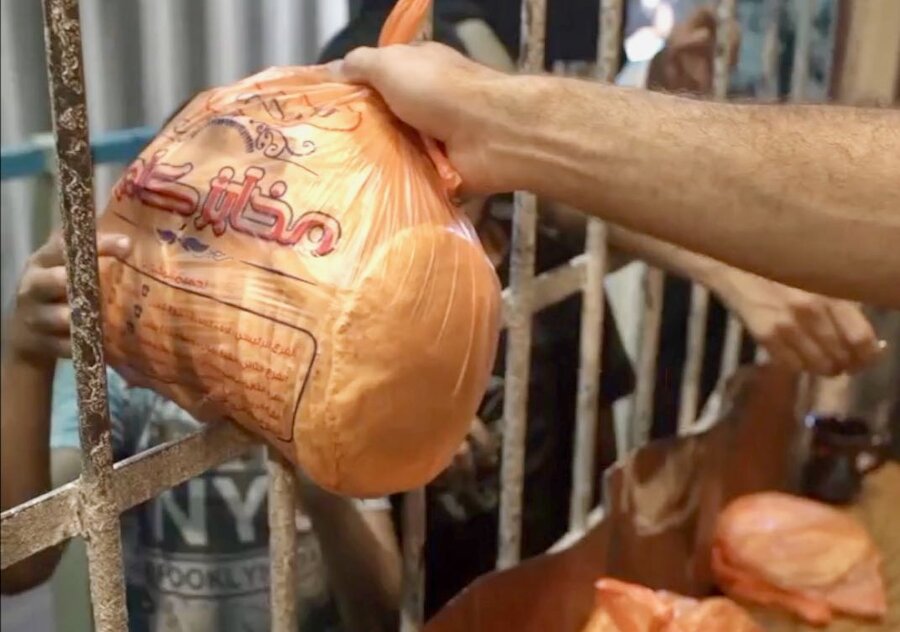
My job is to listen and provide feedback to people WFP assists. It’s hard because you know people are suffering. People have no clean water, skin diseases are spreading in the camps. It’s hard knowing you often can’t offer them immediate solutions, but you can make a difference just by listening to them – or by telling them, for example, where to pick up a WFP food parcel. That feels very good.
We get up every day and we plan for the day. We can’t imagine the next day. We might have to evacuate again. We might be killed. It’s really hard to have a spark of hope. But when I look at my kids’ eyes, I know there’s a reason to continue, to get up every day. I need to give them a better life, to keep them safe, to work harder. To stay well for them.
Amal Abushammala
Driver and administrative assistant
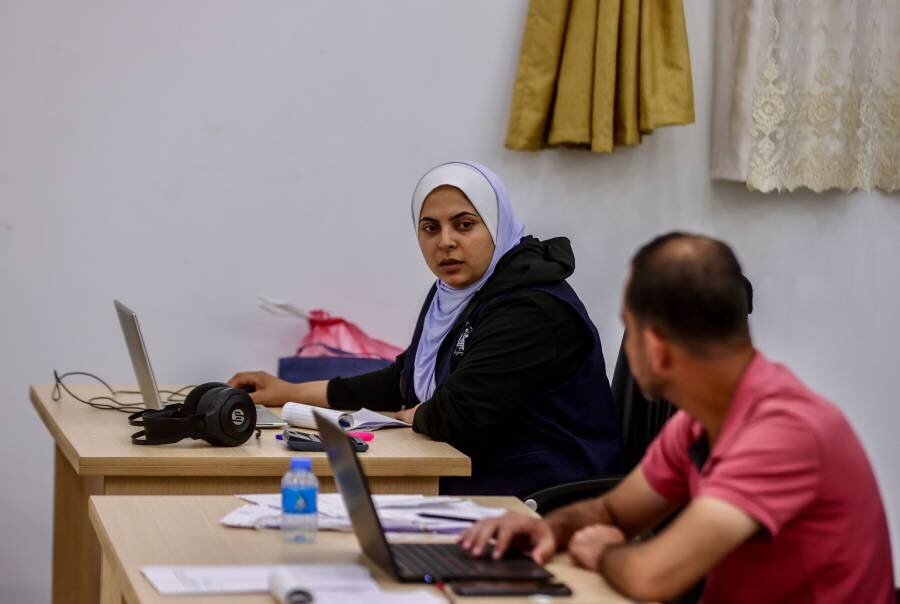
A civil engineer by training who grew up in the southern city of Rafah, Amal Abushammala worked as a WFP driver in Gaza - until a bullet in February shattered her windshield. Abushammala survived, but changed jobs to work in administration, helping colleagues get accommodation and sorting through red tape to import essential supplies. She rents a tiny room in central Gaza which she shares with her brother and sister.
My parents left for Egypt three days before the war started. Now, when they hear anything in the news, they call us to find out what happened, whether we’re safe. But there’s no safe place in Gaza.
In May, we left our family home in Rafah after receiving evacuation orders, taking just a few things – clothes, dishes. Every time you get to a new place, they’ll be a new order to leave, so it’s very tiring.
At the WFP office, we try to make a good work environment. It’s always busy, so you don’t always have time to feel afraid. But we’re always afraid for our families. One of my colleagues lost 10 people in his family, including three daughters. Another lost his brothers. They’re very sad, but what can you do? This is our life.
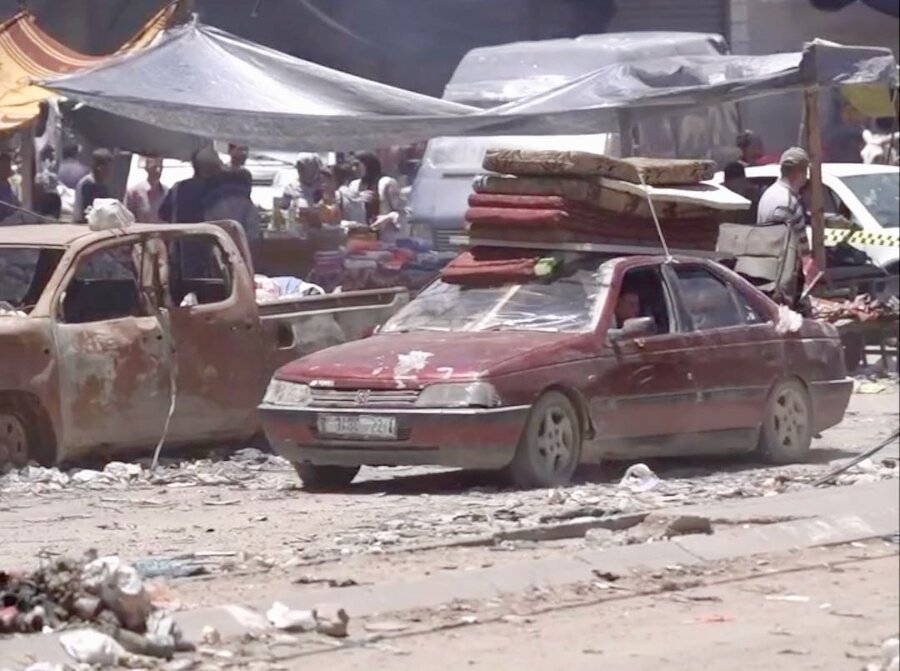
As a driver, I would see dead and injured people on the ground. Now, I’m responsible for helping my colleagues, trying to find them food, accommodation, clothes from the market – and it makes me feel better.
I'm thinking about leaving Gaza (when the war ends), because you can’t live in this situation. You build your home, your job, your family - and in seconds, it’s all destroyed. We try to make ourselves happy, but nothing allows you to be happy. God willing, conditions will improve.
Nour Hammad
Communications Officer
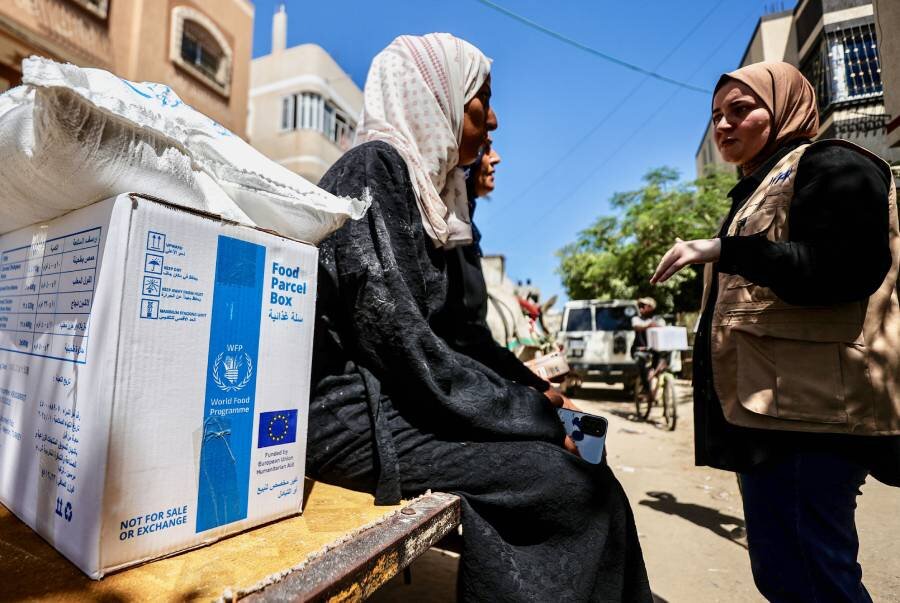
Nour Hammad left her home in the central Gazan town of Alzahra’ last November, a month after the war began. Today, she lives with her siblings in a small apartment, also in central Gaza. There’s a serious lack of water and no electricity, but she feels lucky to have a roof over her head - even though its difficult to stay positive.
When I look out my window, I see bombed-out buildings and tents all around. People struggle to pitch new tents, because it’s too crowded. Every day it gets more crowded.
When I left my home, I evacuated to another town in central Gaza, thinking it would be the safest place. But it became absolutely unsafe and I evacuated again, to a refugee camp in the area. Then an airstrike near us shattered my windows and door, and forced me to evacuate once again.
With every evacuation, you realize nothing is certain. The neighbour you got to know is no longer your neighbour. The place you thought was safe is no longer safe. You are never the same person after such experiences.
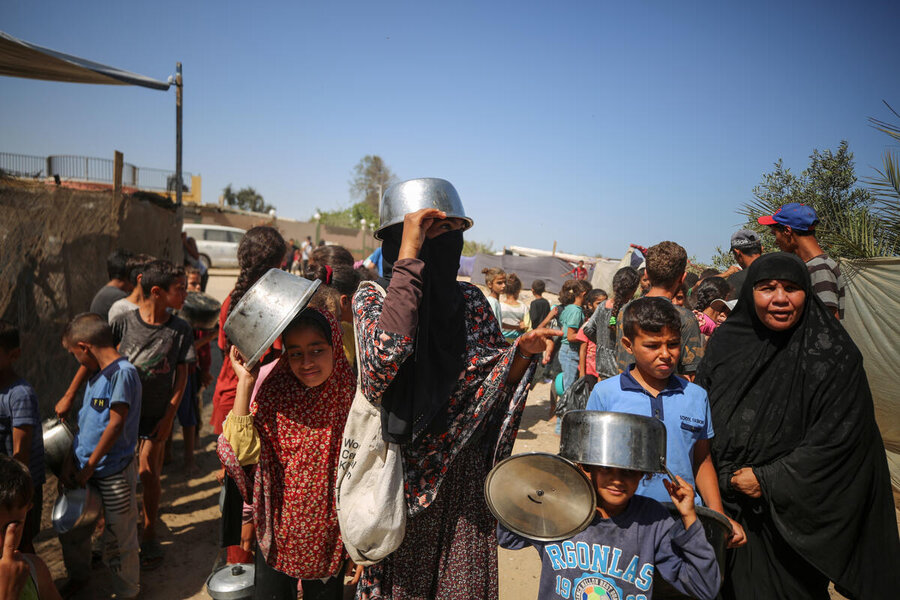
I love Gaza, but I’ve always seen it like a tiny prison. These last 10 months feel like 10 years. It sometimes feels like a hangman’s noose is around your neck. Some days, the noose is so tight you can barely take a breath. But other days I feel capable, cheerful, ready to persevere.
At the office, we try to take care of one another because we know everyone is going through a lot. I have a great WFP team; they are my support group during these days. Sometimes our operations take a step forward; then military action will put us three, five steps back. At some point, you start wondering: what’s the point?
But these moments go away when we see people getting WFP food. In northern Gaza, they sent us air kisses and hearts to thank us. It’s moments like these that remind me there’s a reason for our work.
